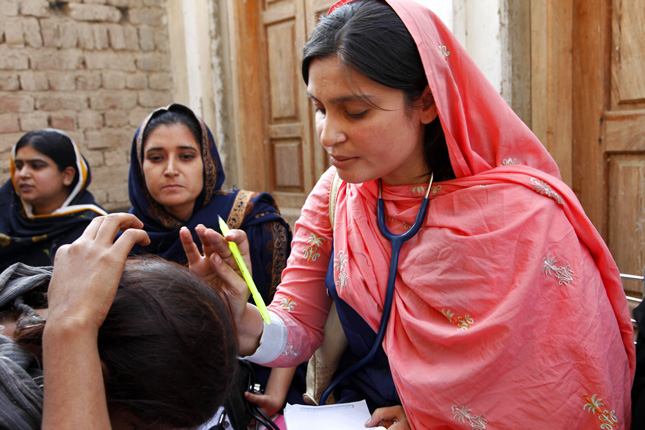-
Kaja Jurczynska, All Access
In Pakistan, More Questions Than Answers When It Comes to Family Planning
April 9, 2014 By Wilson Center Staff
Imagine you’re a woman living in Pakistan who would like to decide if and when to have children. You’re going to school, or you’ve got a job, or you’ve had a child and simply want some space before your next pregnancy. How easy will it be for you to get your needs met?
That question is harder to answer than you might think.
Last month, we examined Pakistan’s key demographic indicators, finding that increased access to voluntary family planning is key for realizing the country’s potential demographic dividend. But is Pakistan really making progress toward improving access to family planning information, services and supplies?
Pakistan was one of the first South Asian countries to initiate a family planning program (1960), though their efforts floundered until the 1990s, when outreach activities by female community health workers brought services and information to people’s doorsteps. Between 1990 and 2001, contraceptive prevalence increased sharply, from 12 to 28 percent, though progress has slowed significantly since. Pakistan’s family planning activities, which were divided between the Ministry of Health and the Ministry of Population Welfare, suffered from a lack of interdepartmental coordination, inefficiencies, weak political will and implementation as well as insufficient funding.
Continue reading on All Access.
Sources: Population Council.
Photo Credit: A doctor with International Medical Corps in Sindh after the 2010 floods, courtesy of the UK Department for International Development.
Topics: demography, development, family planning, gender, global health, Pakistan, population, South Asia
 A Publication of the Stimson Center.
A Publication of the Stimson Center.



